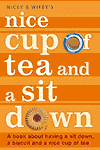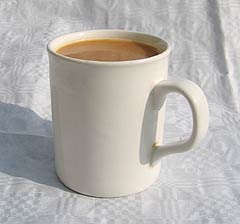|
| Nice | ||
| Mission Statement | ||
| About | ||
About our book Buy our book as Classy Hardback Cuddly Paperback | ||
| Tasting | ||
| Mailing list | ||
| Newsletters | ||
| Nice NEWS 14/10/2008 | ||
| Biscuit of the week Club Milk | ||
| Your feedback Pauline Wilson | ||
| Search feedback | ||
| The Wife says 14/12/2007 | ||
| Fig Fest | ||
| Biscuit quiz | ||
| Your Reviews | ||
| Missing in action | ||
| What the polls said | ||
| Stuff | ||
| Prawnzilla | ||
| Giant Bee | ||
| Underpant toast | ||
| Apocalypse Bunny | ||
| Giant Marmots | ||
| The Duck | ||
| We are hosted by Precedence Technologies Internet Services | ||
 |
| Home | For | Cake | Tea | And | Biscuits |
Nice NewsYour up to the minute source for news in the fast moving world of tea and sit downs. If you have some nice news that you think we should know about, it might be that you've spotted a long lost biscuit, or maybe you've found somewhere that does splendid tea and sits downs, then why not email us at the usual address. | |||||||||
| |||||||||


